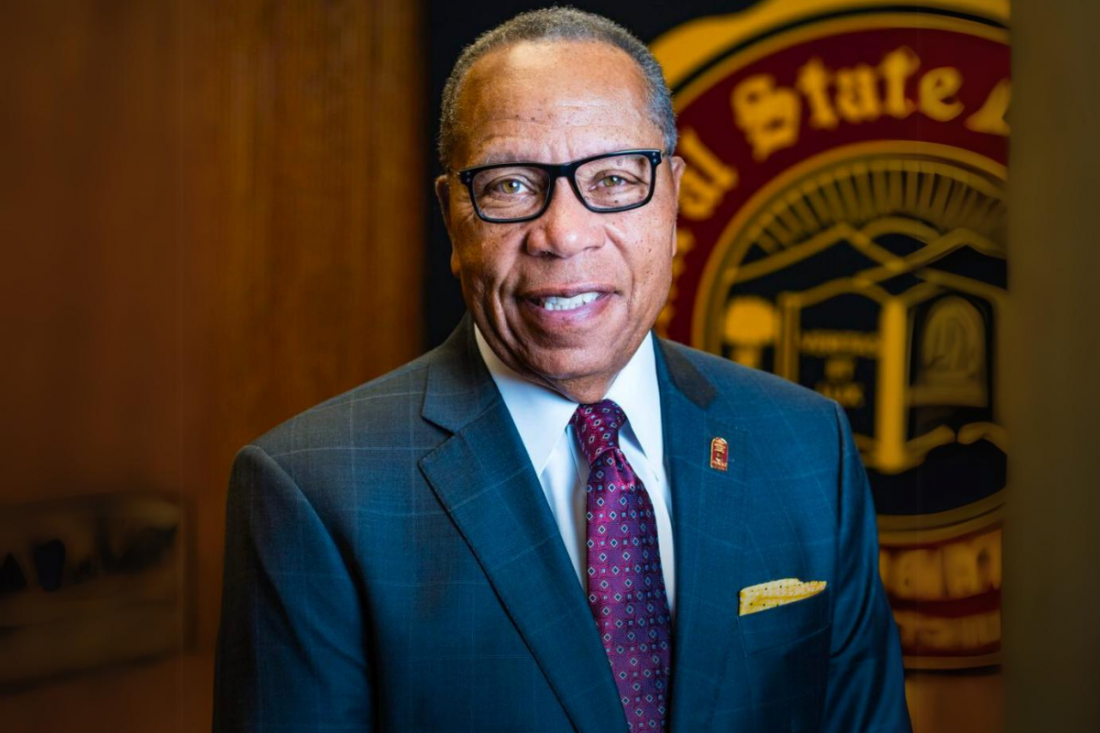Throughout his decades-long career in higher education, Alex Johnson always held onto one desire – to return to one of the United States’ 107 Historically Black Colleges and Universities (HBCU) to contribute his expertise.
“I wanted to provide whatever assistance I could to ensure that they remain true to their mission around access and success,” he tells The CEO Magazine.

“What we do is offer quality education in an environment that is culturally enriching; it allows individuals to pursue their greatest hopes and dreams, both personally and professionally.”
Johnson has remained involved with the HBCU he graduated from, Winston-Salem State University, in a number of ways over the years. Still, his hope was always to give back to the sector with even greater implication – something he is now achieving as Interim President of Central State University (CSU).
Although he had established his own consulting business after serving nearly 30 years as President across four community college institutions, when he was asked to help CSU address its advancement for the future, he says it was an offer he couldn’t refuse.

Advertisement
“When CSU offered me that opportunity, it allowed me to accomplish one of my fondest hopes and dreams,” he says. “They asked me if I would come in and serve for a year on an interim basis as President to ensure that the college remained in good shape for its successor.”
The university’s former president, Jack Thomas, had left the university in “really good shape,” according to Johnson.
“He left behind a great legacy with respect to honors programming, with respect to the focus on student success and achievement and on ensuring that our land grant mission remained very strong,” he says. “And that’s what I’m building on today.”
Plan of Action
As he prepares CSU for its next President, Johnson is focusing on five key areas. The first is infrastructure, particularly in the university’s information technology and financial systems.
Affordability is the second.
“We are making certain that students still experience an affordable education without duress, and so we are ensuring that institutional aid is available to them and that it is increased,” he says.
This involves bringing in more scholarship support from benefactors and philanthropic groups.
Getting the word out about developments underway at the university is the third area, which is helping to recruit new students into the institution.

“We are making certain that students still experience an affordable education without duress, and so we are ensuring that institutional aid is available to them and that it is increased.”
“We want to ensure that the brand, the image of the institution, continues to advance by telling the good stories, sharing the good news about CSU, its students, faculty, staff and the extraordinary things in which they are engaged.”
The fourth area is focused on a strong mix of programs, which are also crucial to drawing in more students, particularly in the science, technology, engineering and mathematics learning areas, as well as in the area of health careers and human services, according to Johnson.
The fifth and final key area Johnson is focusing on – which he describes as the “most critical” – is ensuring that CSU can graduate students in greater numbers. This encompasses connecting with potential students, converting interest into action, making the enrollment process seamless, ensuring there is barrier-free integration into student life and encouraging positive classroom experiences to retain students for further education.
A Broader Mission
Innovation plays an increasingly important role in all of this. Amid the COVID-19 pandemic, CSU established an online presence for around 55 percent of its student enrollment – a tally of more than 4,000 students. Expanding access to technology is also part of this vision, with a Department of Commerce grant supporting the university to expand broadband services to the entire Wilberforce community.
On top of all that, a major renovation to the tune of US$65 million is currently underway, funded through the 3P partnership between government and private sector institutions, with the improvements expected to further enhance the university’s appeal for prospective students.
If Johnson departs from his position at CSU having delivered on all of these objectives – as he is on track to do – he will have not only satisfied the brief he was given when he was appointed to the role, he will have further fulfilled his personal ambition to give back to the sector.

“For me, this is one of the great opportunities that an individual has in a lifetime – to lead an institution that’s not only historic but continues to be committed to its mission around access and success, particularly for individuals from culturally diverse backgrounds,” he says.
“It’s a critical responsibility, so what we do is offer quality education in an environment that is culturally enriching; it allows individuals to pursue their greatest hopes and dreams both personally and professionally.
“And with those attainments, students are able to go out and not only have really great careers, but engage in community work that can sometimes make all the difference.”




